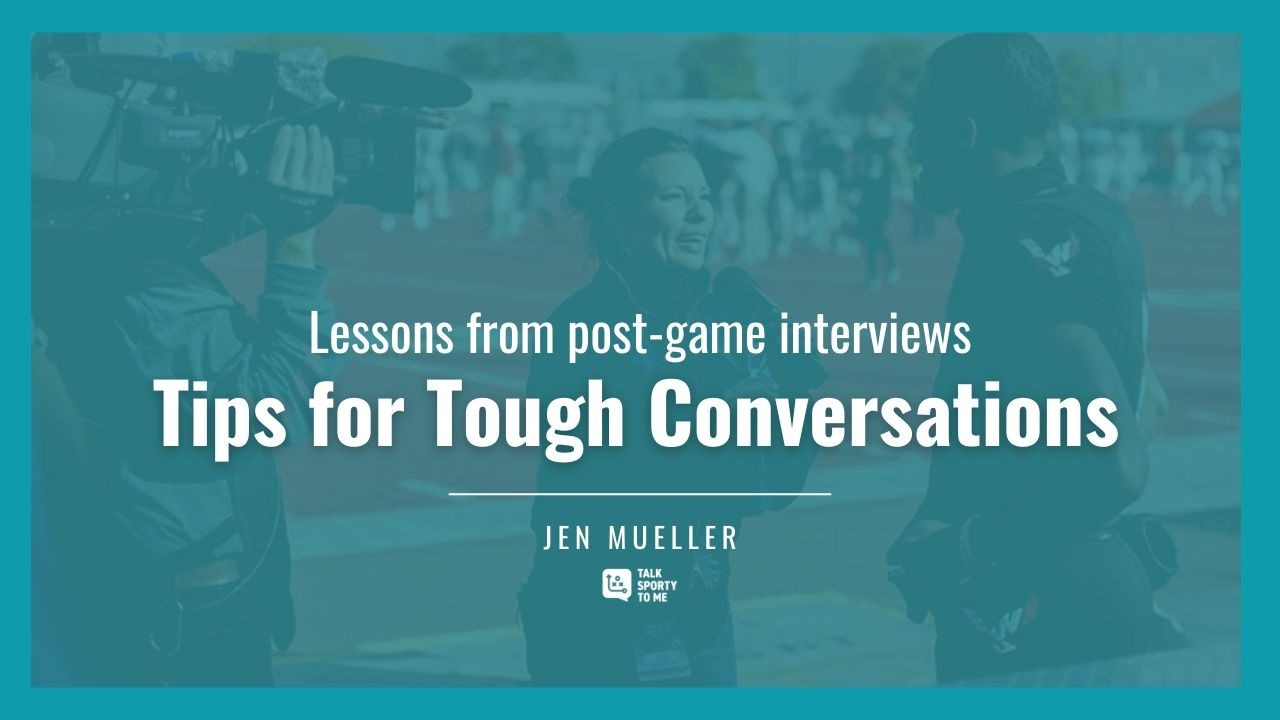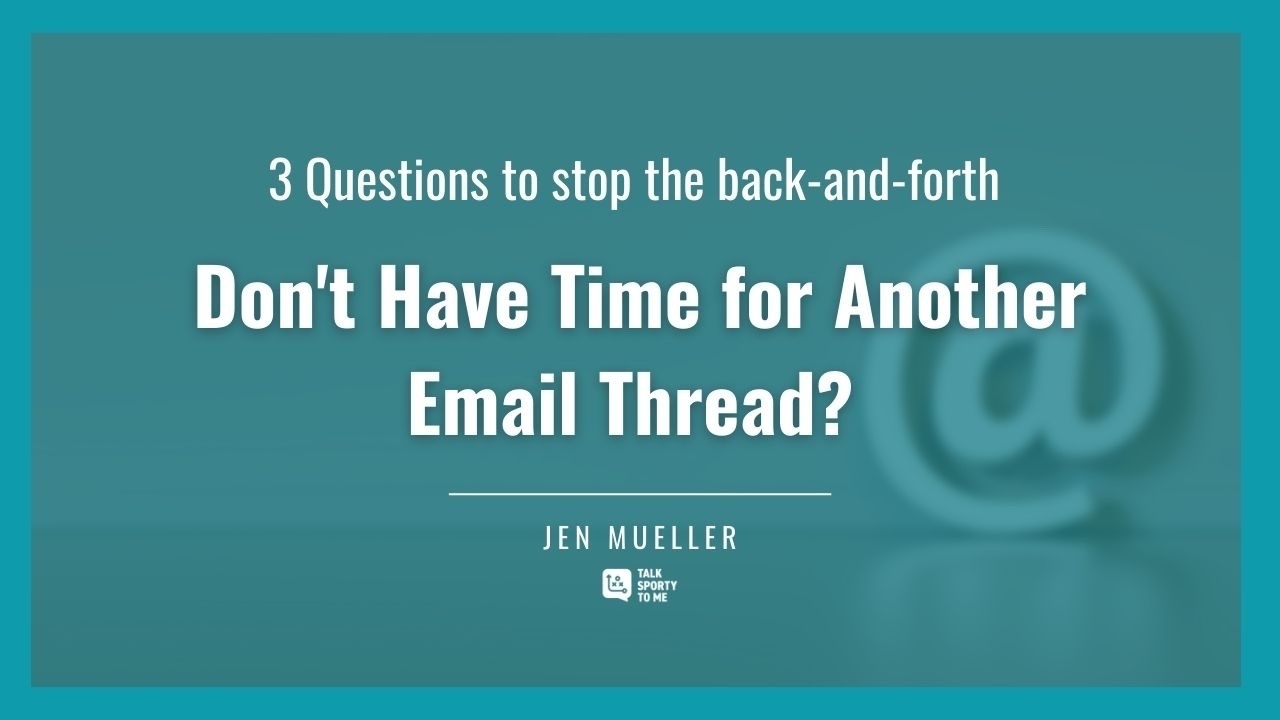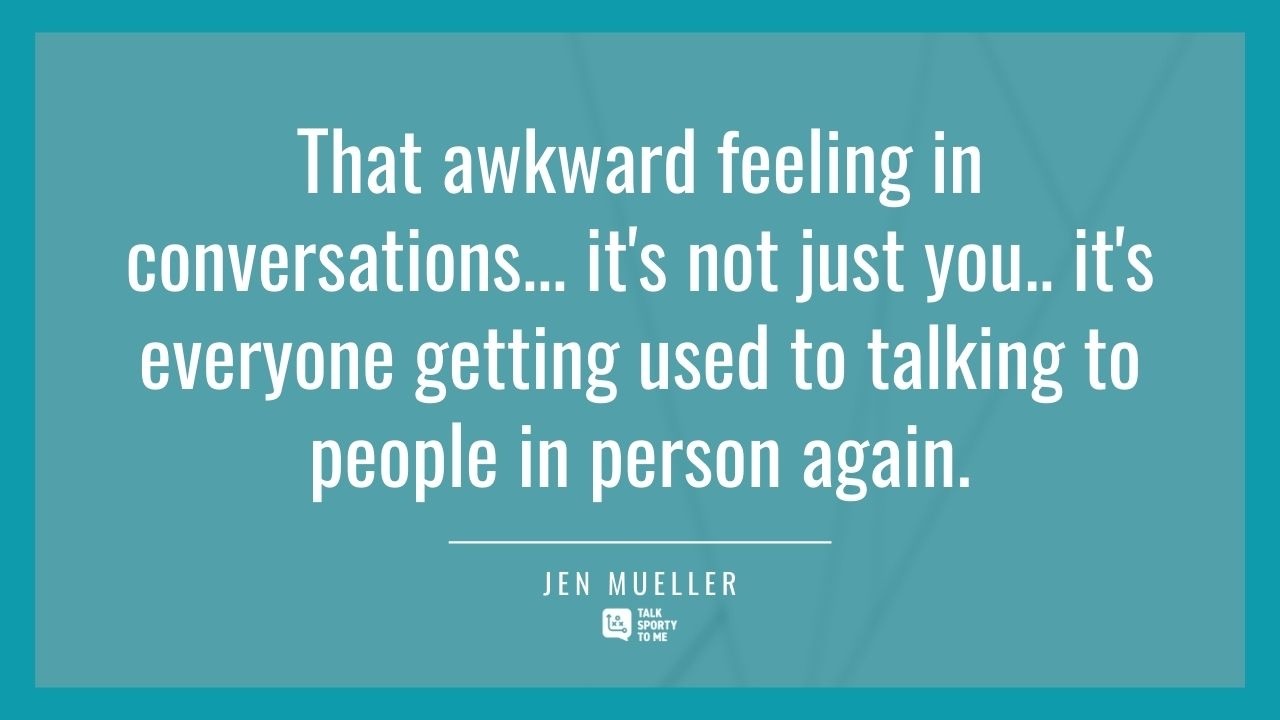There is a difference between saying "I was wrong" and "I'm sorry." Both are important, but you don't necessarily need to apologize if you guessed wro...
Could you imagine having a performance review every week?
Or having to talk about every outcome (good and bad) your team produced in a week?
Even wo...
Hard work pays off, but it doesn’t necessarily speak for itself. You have to be able to articulate your value because the answer to the question: “Doe...
"What was he thinking?"
"How could the team be so bad?"
"What the heck happened in that game?"
Every sports fan asks questions like these. It'...
We are a quarter of the way through the NFL season. If you’re not already a fan, now is a great time to get on board. What’s in it for you? Multiple...
I talk to losers.
It is literally part of my job.
When people find out I work in sports broadcasting they automatically jump to the cool parts of th...
A quick search about small talk and effective small talk reveals lists of questions, articles on the “necessary evil” of it and hacks to make it easie...
Habits can be tough to break, especially when there’s no obvious need to change what you’ve grown comfortable doing. Take standard small talk and conv...
Did you know that research has shown the average person sends and receives 121 emails a day while at work?
Researchers have also determined every tim...
Hot mic moments. I think we've all had them at some point in the last couple years with as much as we've spent logged on to virtual meetings, conferen...
I don't have time to be emotional. Heck, in my line of work I can't afford to be "emotional." As a woman working in sports that's one of the quickest ...
Your resume is a reflection of your skill level, not your leadership ability.
Sure, there are leadership aspects that come through in the jobs you've...
















